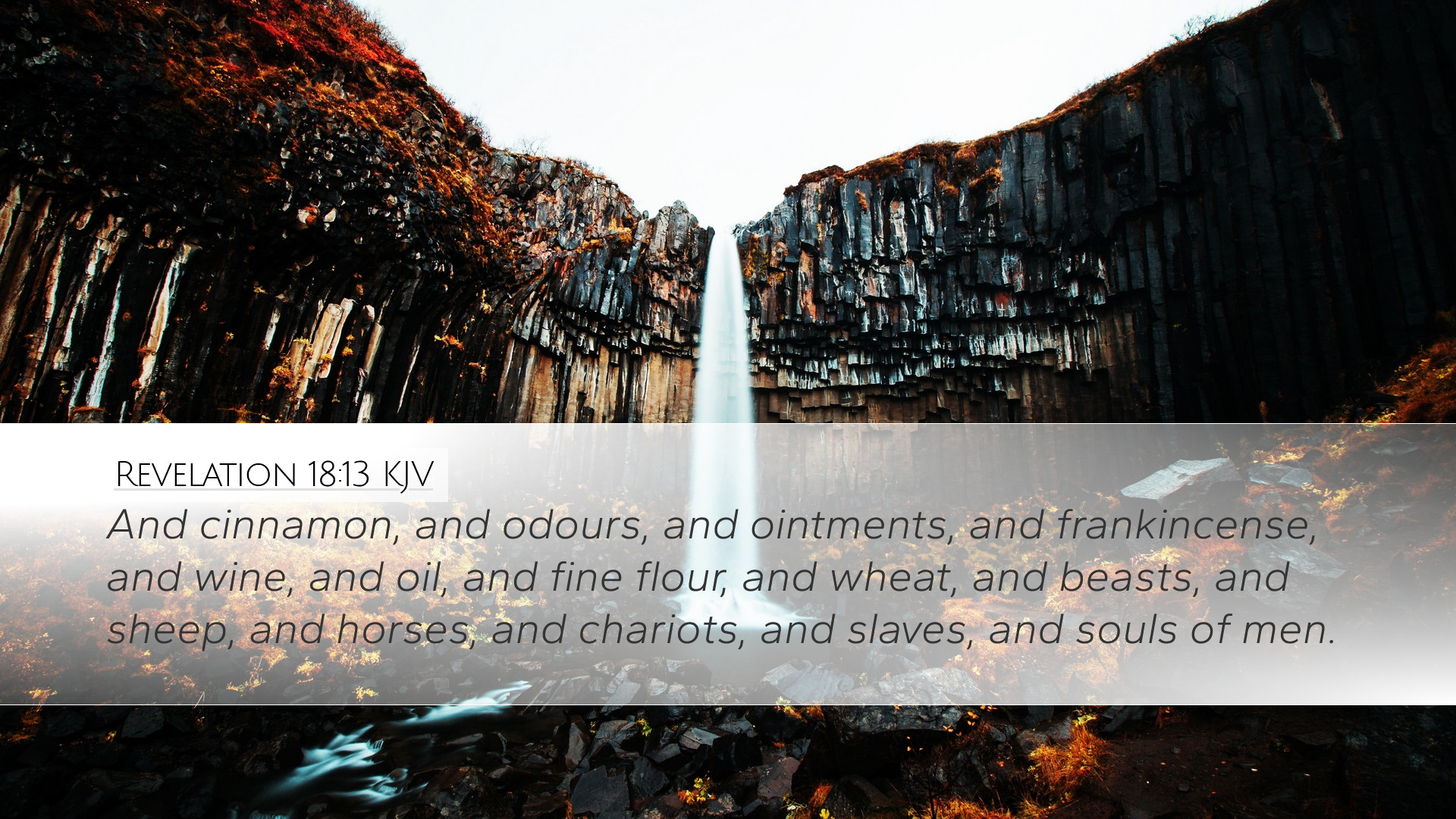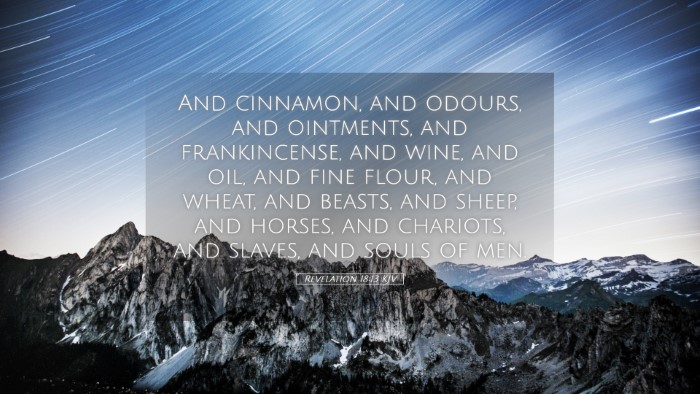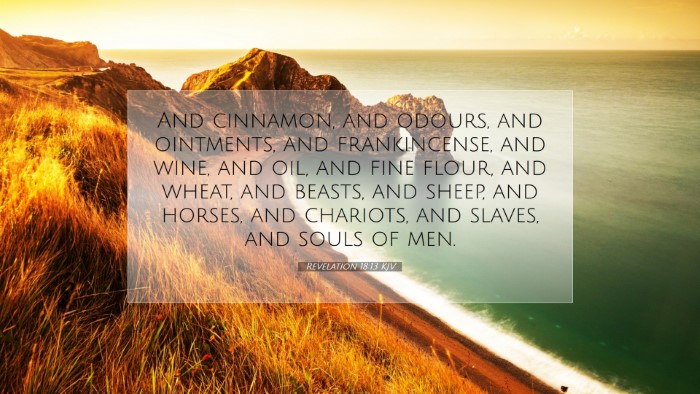Commentary on Revelation 18:13
Text of Revelation 18:13 (KJV): "And cinnamon, and odors, and ointments, and frankincense, and wine, and oil, and fine flour, and wheat, and beasts, and sheep, and horses, and chariots, and slaves, and souls of men."
This verse appears in the context of the fall of Babylon, representing the luxurious excesses and materialism of a great nation that has turned its back on God. It details the items that the merchants mourn for, encapsulating the ruin of trade and wealth, giving deep insight into the spiritual and economic implications of a society that has estranged itself from divine principles.
Insights from Public Domain Commentaries
Matthew Henry: Henry emphasizes the symbolic nature of these goods listed in this verse, interpreting them as representations of all that is temporal and materialistic. He notes that Babylon’s destruction renders these luxuries futile, illustrating the temporary nature of earthly possessions. The mention of “slaves and souls of men” highlights the moral degradation present within this society, indicating that its wealth was built upon exploitation. He warns that when judgment day arrives, wealth accumulated apart from God will prove worthless.
Albert Barnes: Barnes provides a comprehensive overview of the specific items mentioned in the verse. He interprets each item listed—cinnamon, frankincense, and oil—representing the opulence and extravagance of Babylon's commercial interests. Barnes points out that these goods were valued commodities in the ancient world, illustrating the society's dependence on trade for prosperity. He underscores the despair that the merchants express over their lost fortunes, which serves as a stark reminder of the transient nature of worldly wealth.
Adam Clarke: Clarke delves into the socio-economic implications of this verse, asserting that the mention of "slaves and souls of men" is particularly troubling. He interprets this as a reflection of a society that commodifies human life, reducing individuals to mere economic assets. Clarke stresses that the most grievous aspect of Babylon's economy is not just the luxury and excess, but the ethical compromise and loss of humanity involved. Clarke exhorts readers to consider how earthly pursuits can distract from spiritual well-being and the ultimate judgment faced by those who prioritize material wealth over righteousness.
Theological Implications
Revelation 18:13 serves as a profound reminder of the dichotomy between the riches of this world and the riches of the Kingdom of God. The emphasis on trade goods illustrates the temptation of idolatry through wealth. Pastors and theologians are prompted to consider how contemporary society mirrors the excesses of Babylon.
- Materialism and Idolatry: The verse evokes a critique of modern materialism, where consumer goods often replace spiritual fulfillment. Ministers can draw parallels between the anxieties of the merchants over lost wealth and the contemporary believer’s struggle with reliance on wealth rather than God.
- The Value of Human Life: The mention of “slaves and souls of men” invites a reflection on the value of human life and the call to oppose systems of exploitation. It challenges church leaders to consider their roles in advocating for social justice and the dignity of every individual created in the image of God.
- Temporal Vs. Eternal: This verse is a powerful reminder of the transient nature of worldly possessions. The church is called to view wealth and resources through the lens of eternity and to prioritize spiritual treasures over temporary gains.
Conclusion
In conclusion, Revelation 18:13 provides a rich tapestry of theological insights and practical applications for pastors, theologians, and students of the Word. It challenges the reader to reflect on the nature of wealth, the ethical implications of economic systems, and the ultimate fate of those who place their trust in temporal goods. The rich commentary from Henry, Barnes, and Clarke serves to deepen our understanding of the complex relationship between society, economy, and faith. As believers, we are encouraged to prioritize our relationship with God above all material interests, ensuring our value system aligns with Kingdom principles.


